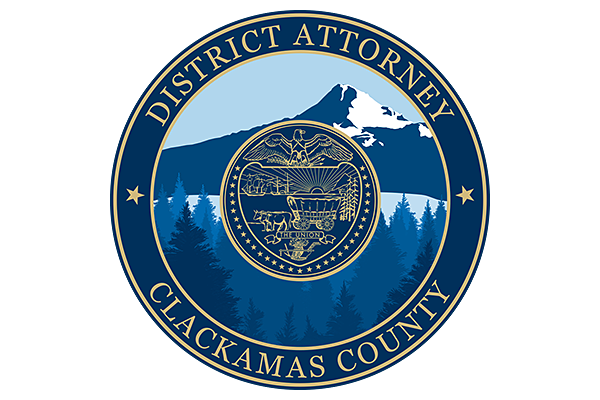What is human trafficking?
The Polaris Project, a survivor-centered, justice- and equity-driven organization, defines human trafficking as “the business of stealing freedom for profit.” Traffickers may use deception, coercion, threats, or physical force to exploit victims for sex or labor under inhumane, illegal, or unacceptable conditions. Globally, human trafficking affects 24.9 million people and generates billions of dollars in criminal profit.
Polaris operates the U.S. National Human Trafficking Hotline, connecting survivors to support and services, helping communities hold traffickers accountable, and maintaining the largest known dataset on human trafficking in North America. This data informs strategies to prosecute traffickers, support survivors’ recovery, and address systemic vulnerabilities.
Human Trafficking in Clackamas County
In 2015, the Clackamas County District Attorney’s Office began assessing the human trafficking issue locally. Meetings with regional and national experts confirmed that trafficking affects individuals of all ages, genders, ethnicities, and socio-economic backgrounds.
“Our main goal at the Clackamas County District Attorney’s Office is to provide justice and safety to crime victims and our community. Combatting human trafficking is a major part of that mission,” said District Attorney John Wentworth.
Senior Deputy District Attorney Stacey Borgman leads the Human Trafficking team.
Partnerships and the Multidisciplinary Team (MDT)
In 2015, the District Attorney’s Office formed a Human Trafficking Work Group, partnering with local law enforcement, the Commercial Sexual Exploitation of Children Coalition, and other agencies. This group evolved into the Clackamas County Human Trafficking Multidisciplinary Team (MDT), one of the first certified by the Oregon Department of Justice.
The MDT meets monthly with law enforcement, non-governmental organizations, the juvenile department, the Department of Human Services, and other partners. Subcommittees focus on:
- Law Enforcement
- Victim Services
- Training and Outreach
- Data Collection
- Labor Trafficking
The District Attorney’s Office chairs the MDT, (HTMDTLE), and the Steering Committee. The MDT develops protocols and guidelines for identifying victims, responding to cases, investigating, prosecuting, and providing a continuum of care. It also provides training to law enforcement, hospitals, hotels, and community organizations.
Diversion and Education Programs
- Community Court Diversion
The District Attorney’s Office integrated a diversion program for individuals engaging in prostitution, connecting them with counseling, mentorship, and support services. Hundreds of victims have benefited from this program. - Sex Buyers Accountability and Diversion (SBAD) Program
In partnership with the Milwaukie Police Department, this program educates individuals who purchase sex about the impact of their actions. Funds generated through SBAD support local trafficking victims and related services.
Since 2016, law enforcement has taken a proactive approach to investigating trafficking, conducting organized operations to locate victims and hold traffickers and buyers accountable.
Victim Assistance
Victim Assistance provides support for survivors during prosecution and through the Human Trafficking MDT. Leaving a trafficking situation can be extremely difficult due to factors such as:
- Stockholm Syndrome
- Debt bondage
- Isolation
- Fear of authority or retribution
- Embarrassment or shame
Signs a person may be a trafficking victim include:
- Chronic runaway behavior (minors)
- Prior or current DHS involvement
- Poor school attendance
- Unexplained bruises or injuries
- Scripted or inconsistent answers
- Frequent travel along the I-5 corridor
- Unusual relationships, e.g., with much older partners
- Tattoos, branding, or gang affiliation
- Clothing inappropriate for the weather
Victim Assistance provides immediate crisis intervention, on-scene response, safety planning, ongoing support, and referrals. Advocates are available 24/7 at 503-655-8616.
Additional Resources
Safety Compass
971-235-0021 (24 hrs)
Immediate response and ongoing support for survivors of the sex industry in Clackamas, Marion and Washington counties.
A Village for One
503-730-1469
Provides outpatient mental health services to youth, ages 25 and under, in Clackamas and Marion counties who are victims of trafficking or at high risk for trafficking.
National Human Trafficking Hotline
1-888-373-7888
The National Human Trafficking Hotline connects victims and survivors of sex and labor trafficking with services and supports to get help and stay safe. The Trafficking Hotline also receives tips about potential situations of sex and labor trafficking and facilitates reporting that information to the appropriate authorities in certain cases.
National Center for Missing and Exploited Children (NCMEC)
1-800-843-5678
TTY: 711
Text: 233733
National hotline for reporting missing children and suspected child victims of sex trafficking.
 Translate
Translate






